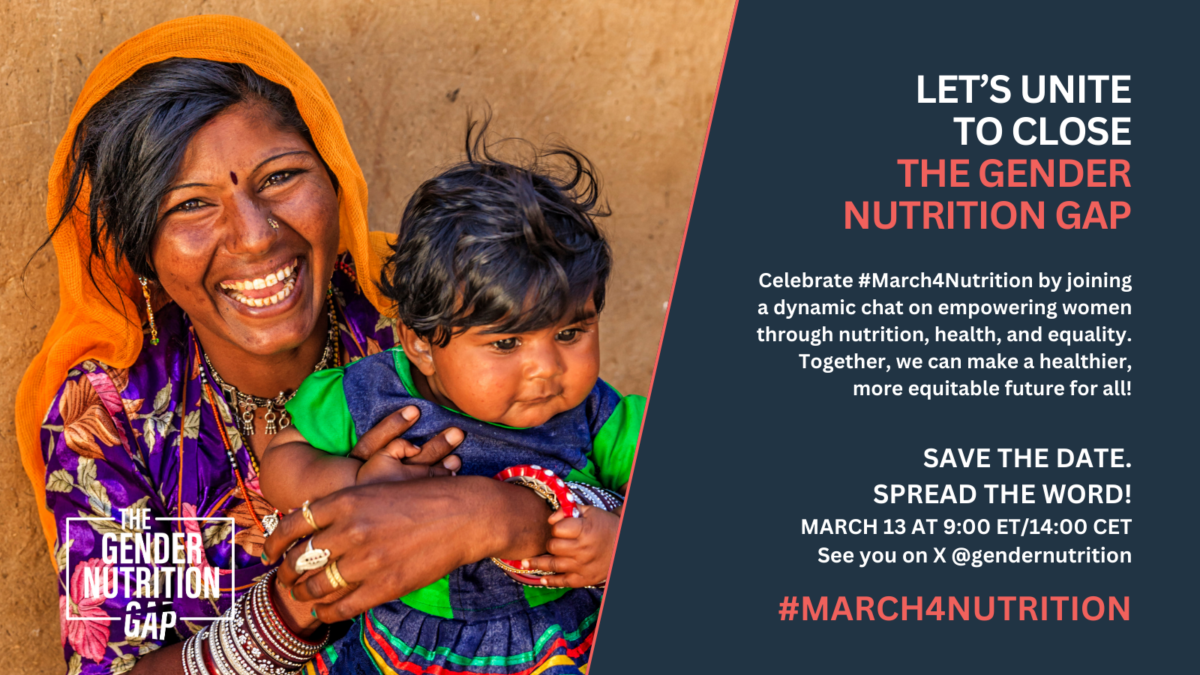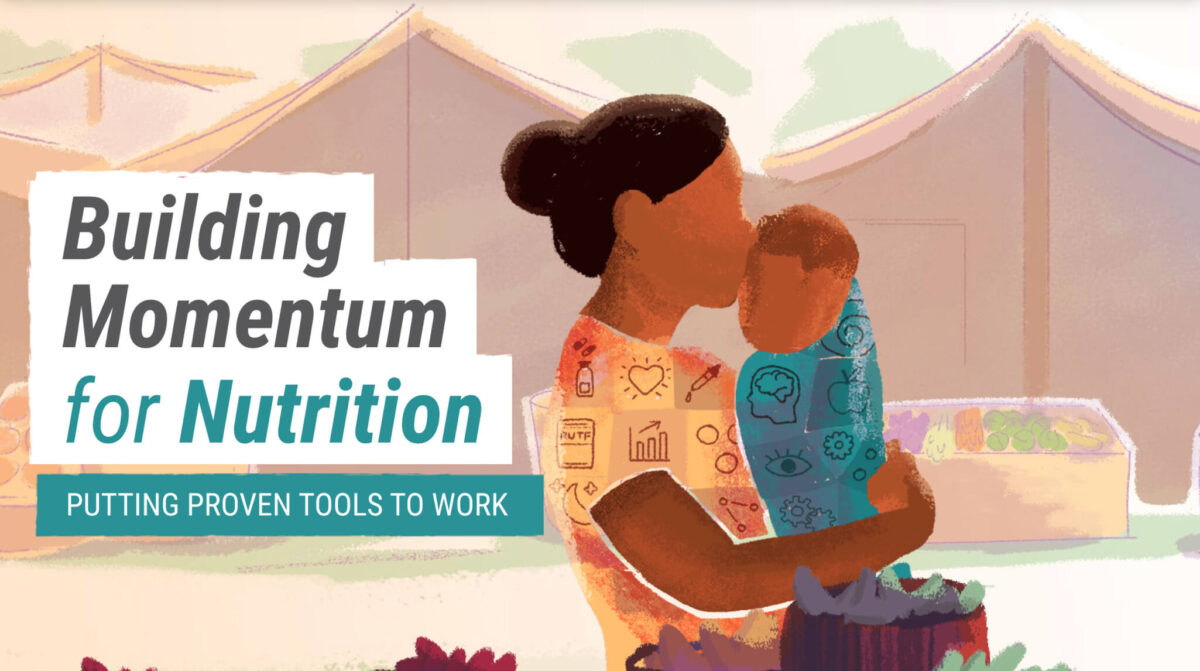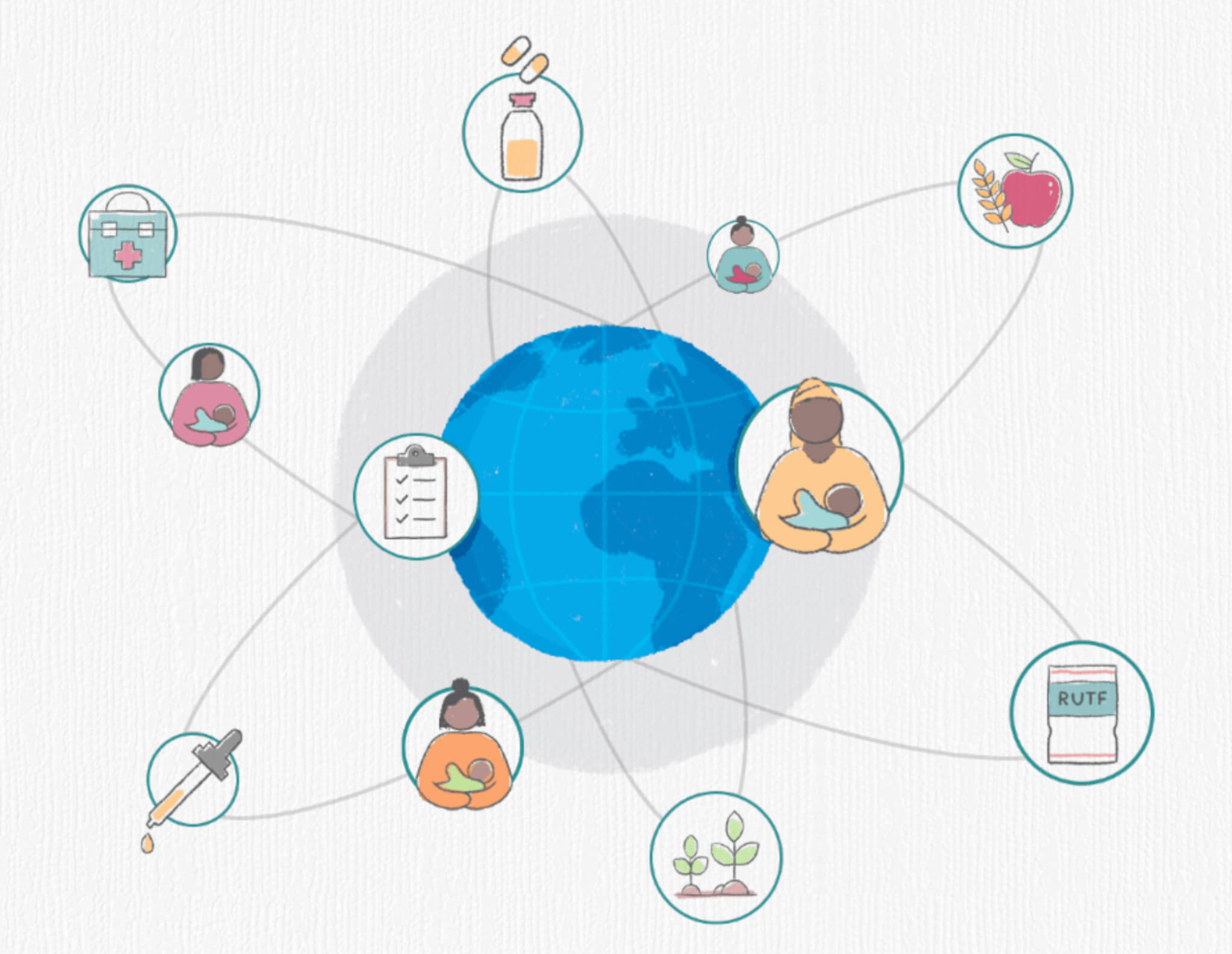Good nutrition before, during, and after pregnancy has a profound impact on the health of both a mother and child. This National Nutrition Month (NNM), and as part of our global #March4Nutrition campaign, 1,000 Days is highlighting some of the nutrition-related regulations and legislation that we support to ensure every child can grow, learn, and thrive. Much of this legislation also shapes the future for mothers, pregnant, birthing and postpartum people. This Spring, we are focused on advocating for regulatory updates, legislation that supports nutrition for families here in the U.S. and around the world, and additional funding to support all these programs. This year’s NNM theme of “Fuel for the Future” highlights the importance of ensuring families are well nourished to support healthy futures.
Updated Regulations for Maternal & Child Nutrition
WIC Food Package Updates
The United States Department of Agriculture (USDA) has proposed several regulatory changes to strengthen nutrition programs and improve maternal and child nutrition. The agency is currently updating the Special Supplemental Nutrition Program for Women, Infants, and Children (WIC) food packages, that would impact over 6 million WIC participants which include moms, babies, and young children. The updates, which are science-based and align with the most recent Dietary Guidelines for Americans and the 2017 National Academies (NASEM) report, increase fruit and vegetable vouchers, promote greater flexibility to accommodate cultural food preferences and dietary needs, strengthen support for breastfeeding, and increase access to under-consumed, nutritious foods, like seafood with lower levels of methylmercury.
Child Nutrition Program Updates
USDA also proposed updated nutrition standards to school meals that would more closely align the standards recommended in the Dietary Guidelines for Americans to provide children with nutritious and delicious meals. The proposed updates do include some changes to the Child and Adult Care Food Program (CACFP), which serves young children, including those in their 1,000-day window, at childcare. Changes in the CACFP program would support more nutritious meals and snacks by reducing added sugar content and allowing more plant-based meat/meat alternate options.
Dietary Guidelines for Americans
While not specific legislation or regulations, the Dietary Guidelines for Americans (DGA) form the basis of nutrition policy in the U.S. and are a critical component of improving maternal and child nutrition. Co-developed every five years by USDA and the Department of Health & Human Services (HHS), the basis of the guidelines is a science-based report developed by the Dietary Guidelines for Americans Advisory Committee (DGAC) which includes nutrition researchers, physicians, and Registered Dietitians. The DGAs have a broad impact ranging from WIC food packages and child nutrition programs to food labeling and nutrition education programs. The guidelines include dietary recommendations for pregnant and lactating people and birth to age 2, which were included for the first time in the 2020-2025 DGA. The next iteration of the guidelines is currently underway as the DGAC is reviewing evidence and drafting conclusion statements which will ultimately lead to dietary recommendations and guidelines for Americans, including mothers, babies, and young children.
2023 Farm Bill
Every five years, Congress reauthorizes the Farm Bill which is a robust, multiyear law that authorizes food and agricultural programs. Although the name may imply that most of the bill is focused on farming and agriculture, nutrition spending makes up an overwhelming majority of the legislation. In 2018, the nutrition title (Title IV) made up about 76% of total Farm Bill spending, and for the 2023 Farm Bill, it is projected to be as much as 85%. The Supplemental Nutrition Assistance Program (SNAP), formerly known as “food stamps,” is authorized in the Farm Bill which is the reason for the large amount of spending for nutrition in the bill. When children have access to SNAP, from birth through early childhood, their risk of developing high blood pressure, heart disease, diabetes, and other poor health outcomes later in life greatly decreases. Children on SNAP can immediately experience a reduction in food insecurity. As Congress works to reauthorize the 2023 Farm Bill, it is imperative that they ensure families have access to the food and nutrition assistance they need through SNAP benefits as nearly half of all people who participate in SNAP are children.
In addition to domestic nutrition programs, the Farm Bill also reauthorizes international food aid programs in Title III. These programs include Food for Peace Title II, the McGovern-Dole Food for Education Program, Food for Progress, and the Bill Emerson Humanitarian Trust. These programs are primarily focused on improving food security. As Congress works to reauthorize the 2023 Farm Bill, we urge them to further consider how the programs can incorporate nutrition interventions to address both food and nutrition insecurity and prevent malnutrition. Robust funding will be needed to address the current malnutrition crisis and to build resilience in communities globally.
Implementation of the Global Malnutrition Prevention & Treatment Act
In October 2022, the Global Malnutrition Prevention & Treatment Act (GMPTA) was signed into law to bolster the federal government’s efforts to address global malnutrition and build resilience. It authorizes the United States Agency for International Development (USAID) to advance targeted interventions to prevent and treat malnutrition around the world while requiring a robust monitoring of interventions to ensure effective use of funding. As USAID works to draft the implementation plan and coordinate efforts, we look forward to working alongside them to ensure all activities address the nutritional needs of families in their first 1,000 days.
Fiscal Year 2024 Appropriations
Addressing nutrition security in the U.S. remains a critical need. 1,000 Days joins the National WIC Association and the broader maternal and child health community in urging funding of $6.35 billion for WIC in FY 2024. This amount will ensure adequate funding to support WIC’s growing caseload and address rising food costs in WIC food categories. We also support increased funding to strengthen FDA’s food safety and nutrition capacity, especially for infants and young children.
While reductions in global mortality rates for women and children are two of the biggest success stories in international development, progress has slowed over the past 12 years. There remain significant gaps that additional investments can help close. In 2021, 5 million children under age five died from mainly preventable and treatable diseases, with malnutrition as the underlying cause of roughly half of these deaths. Additionally, 300,000 women die annually of preventable causes related to pregnancy and childbirth.
As Congress determines funding levels for FY2024, it is critical that funding meets the moment to address the malnutrition crisis. 1,000 Days as part of the 1,000 Days Advocacy Working Group (AWG) and the Maternal, Newborn, Child Health Roundtable (MNCH RT), is requesting $300 million for the nutrition account and $1.15 billion for the maternal and child health (MCH) account within USAID. Malnutrition costs the world $3.5 trillion in lost productivity and healthcare costs each year. The current global food crisis, fueled by conflict, climate shocks and the threat of a global recession, continues to threaten the lives of women and children globally. Full funding of the nutrition account is critical for saving lives and reaching USAID’s goal of ending preventable child and maternal deaths.











